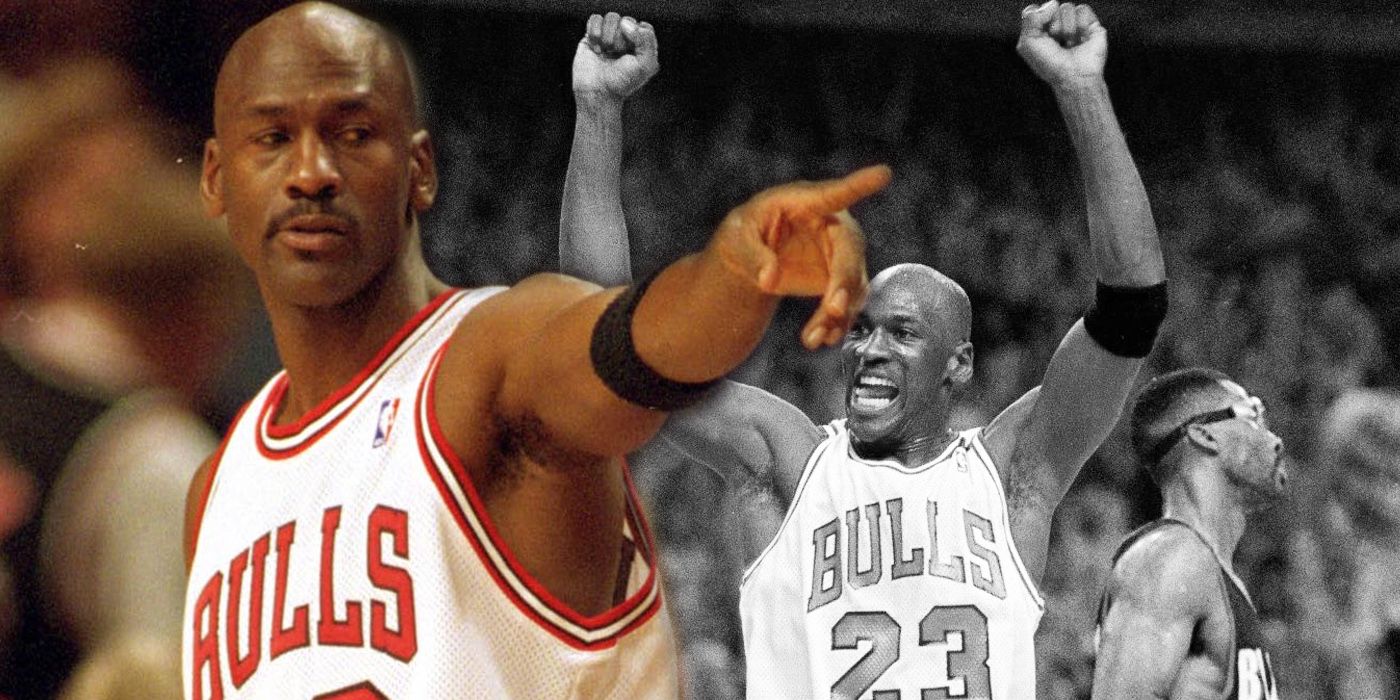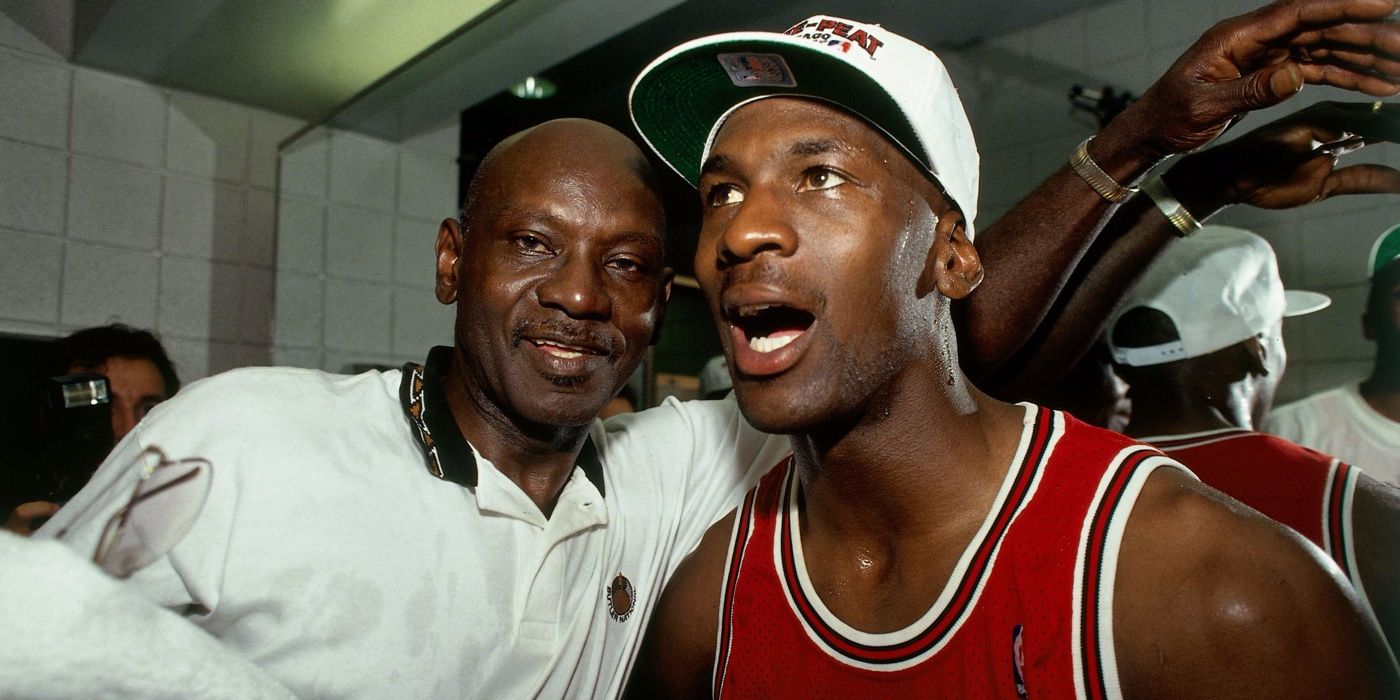ESPN's The Last Dance addresses Michael Jordan's gambling habit, but leaves out an insane retirement conspiracy theory attached to it. Months after the Chicago Bulls won the 1993 NBA Finals (capping off their first three-peat), Jordan shocked the sports world by announcing his retirement. Of course, he would return to basketball in 1995 (eventually leading the Bulls to three more championships), but at the time this was a very surprising development. Jordan was still in his prime, only 30 years old. He clearly had a lot left in the tank, so people wondered why he was stepping away after nine seasons.
Around this time, Jordan's penchant for gambling became a national story - particularly after word got out he went to Atlantic City before Game 2 of the 1993 Eastern Conference Finals against the New York Knicks (the Bulls lost Game 2 to fall behind 2-0 in the series). Other noteworthy incidents The Last Dance covers include Jordan writing James Bouler a $57,000 check to pay off a gambling debt and Jordan losing nearly $1 million betting on golf while playing against Richard Equinas. The NBA did investigate Jordan, determining he was not in violation of league rules. However, conspiracy theorists aren't so sure about that.
Some believe Jordan's first retirement was actually a secret suspension for his gambling, and it was framed as a retirement to preserve his highly-marketable image. Those who subscribe to this theory point to an interesting line of Jordan's in his '93 retirement press conferences. When asked if he'd ever return to the NBA, Jordan said, "Five years down the road, if the urge comes back, if the Bulls will have me, if [NBA commissioner] David Stern lets me back in the league, I may come back." It seemed odd for Jordan to mention Stern in that context.
The official reasons Jordan gave for retiring so early largely had to do with burnout. By all accounts, he had lost his passion to play basketball and felt he had nothing else to prove after winning three championships. The Last Dance supports this by diving into the grueling grind and toll Jordan's celebrity status had on him (painting "I wanna be like Mike" in a new context). Plus, Jordan's father was murdered a few months prior to his first retirement, so grief almost definitely played a role in his decision. In fact, Jordan chose to pursue a baseball career to honor his late father, who dreamed of seeing his son play in Major League Baseball. While the gambling theory certainly is juicy and ripe for intrigue, these explanations for Jordan's first retirement hold weight. After all he had been through, Jordan probably needed a break to regroup. A couple of years later, his drive to play in the NBA returned, and he brought the Bulls back to the top.
Fans know NBA superstar players tend to get preferential treatment, but this would have been taking the concept to its absolute extreme. If the league planned to punish Jordan for gambling, they likely would have done so in a public announcement - not a hush-hush under-the-table deal. Not that Stern would have said anything to the contrary, but the former NBA commissioner always denied there was a connection between Jordan's first retirement and gambling. It's important to note that Jordan was never found to have bet on NBA games (which is probably what the investigation was mostly concerned with), so this isn't like the Pete Rose scandal that rocked baseball. Channeling his competitive nature, Jordan put money on card games, golf outings, and trips to the casino, all of which were within his rights. Again, it's fun to speculate about Jordan being forced out due to gambling, but this is one conspiracy theory that's a little too out there. Sometimes, a retirement is just a retirement. Jordan isn't the only athlete to walk away from the game well before his prime was over. The Last Dance didn't include any mention of the conspiracy so it didn't draw attention to something everyone involved rejects.
The Last Dance airs Sundays on ESPN.


